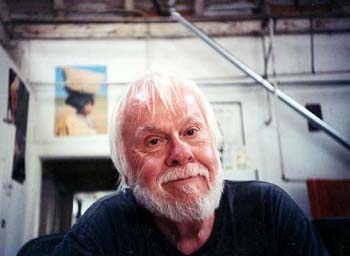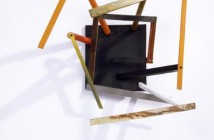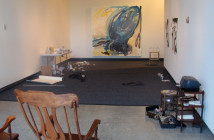Awhile back I was very intrigued with John Baldessari and his collection of film stills. What an elaborate and obsessive system he created where personal organization had more meaning than the “original” source of his material. While this may now represent a typical postmodern moment where the sign and signified have a tenuous and relative relationship, what always amazed me was the authority in which Baldessari claimed these abandoned prints. I adopted his system as a model to explore and document my own curiosities.
Instead of photos, I began accumulating quotes. I found great pleasure in copying the work of others, jotting down word for word their published efforts. I originally started in a notebook brought to me by FOSSIL brand and the rules were fairly simple: Never give evidence that someone else wrote it and try not to categorize the entries. What was chosen as entries varied a great deal: Fiction, art criticism, political writings, musing from bad newspaper columnists who would surprise me with profound one-liners- all had a home in my notebook, as long it struck a chord in me and I remembered to write it down. I wanted to become the author of these words without all the baggage of context and narrative, not to mention copyright. It brings me great pleasure to re-read this notebook with no recollection of where I found the quote, even though I know I read its origin. In this sense, the words are mine, not by copyright, but by confiscation and a slight suspension of belief.
Since then, I have begun transferring them to my laptop. During this transformation the desire to organize the quotes and better understand where and how my current belief system in art might have gone wrong, or perhaps right, has become paramount. Published below is the first time anyone has ever really seen these quotes. Why, you might ask, would anyone be interested in what is essentially a personal intellectual journal? Perhaps it is a thought experiment to see if it really matters whether I wrote these words or not. Painters and Photographers have employed this strategy since the 80s, so why not criticism? To have an affect, to make a provocative statement, one may not need anything more than the crafty organization of other people’s words.
Below is the category I am loosely calling “Art and Commerce.” In consolidating these quotes for the first time, I realize many leave lasting impressions on the work of art in late capitalism. Without an attachment to author, year, context, etc. they exist as a formidable challenge to any notion that art can exist without the current exchange system driving its meaning. I also believe they present not a line of thought, but one where different lines circle around the central problem. I now give you a selection of ten of my favorites:
The best utopias are always the ones where somebody else pays.
Art, or at least the monetary value it holds, depends on the belief that it can transcend its own material beginnings; and essentially, become something so meaningful that it not be limited by the ‘inconsequential’ workings of commerce.
It’s very hard for us in America to complain or to feel that are complaints are justified, because, after all, what are we complaining about? That the objects we surround ourselves with are disappointing?
… When I sold it, the curator mentioned that the cotton would go yellow in a few years time, so I told him that he could change it. He also said that the photos would fade, so I told him that’s okay, there are always more dead Swiss- I don’t care which one’s you use. Moreover, even the shelves were not going to fit, as they have been made for a different room! And the curator asked, ‘What did we buy?’ And I said well, you’ve bought photos of dead Swiss and shelves with white cotton. But it’s not an object, it’s an idea.
I think economic pressure creates the most fascinating, infuriating, desperate kind of beauty, and that's what I'm after.
The trade of territorial symbols precedes the exchange of commodities. In the Trobriand Islands two villagers traded with each other in yarns, despite the fact they were both well supplied with identical yarns. The yarns were not chosen because they were pretty yarns, not because they were better to eat. The point being, that if I invade you with my pretty yarns, I have a territorial claim on you, and I must expect you to invade me with even prettier yarns if we are going to remain at peace.
I know I’m pushing that button, to take government money and then do something to the Virgin Mary.
A lack of desire to spend money becomes a symptom of disease that requires expensive medication then destroys libido, in other words, destroys the appetite for the one pleasure in life that’s free, which means the person has to spend even more money on compensatory pleasures. The very definition of mental health is the ability to participate in the consumer economy. When you buy into therapy, you’re buying into buying.
Criticizing a sick culture, even if the criticism accomplished nothing, had always felt like useful work.
An object in a museum case must suffer the de-natured existence of an animal in a zoo. In any museum the object dies- of suffocation and the public gaze- whereas private ownership confers on the owner the right and the need to touch. As a young child will reach out to handle the thing it names, so the passionate collector, his eye in harmony with his hand, restores to the object the life-giving touch of its maker. The collector’s enemy is the museum curator. Ideally museums should be looted every fifty years, and their collections returned to circulation…
Why should art become "prostitution" when it seeks monetary gain?
Links:
John Baldessari
All images are courtesy of the artist.





